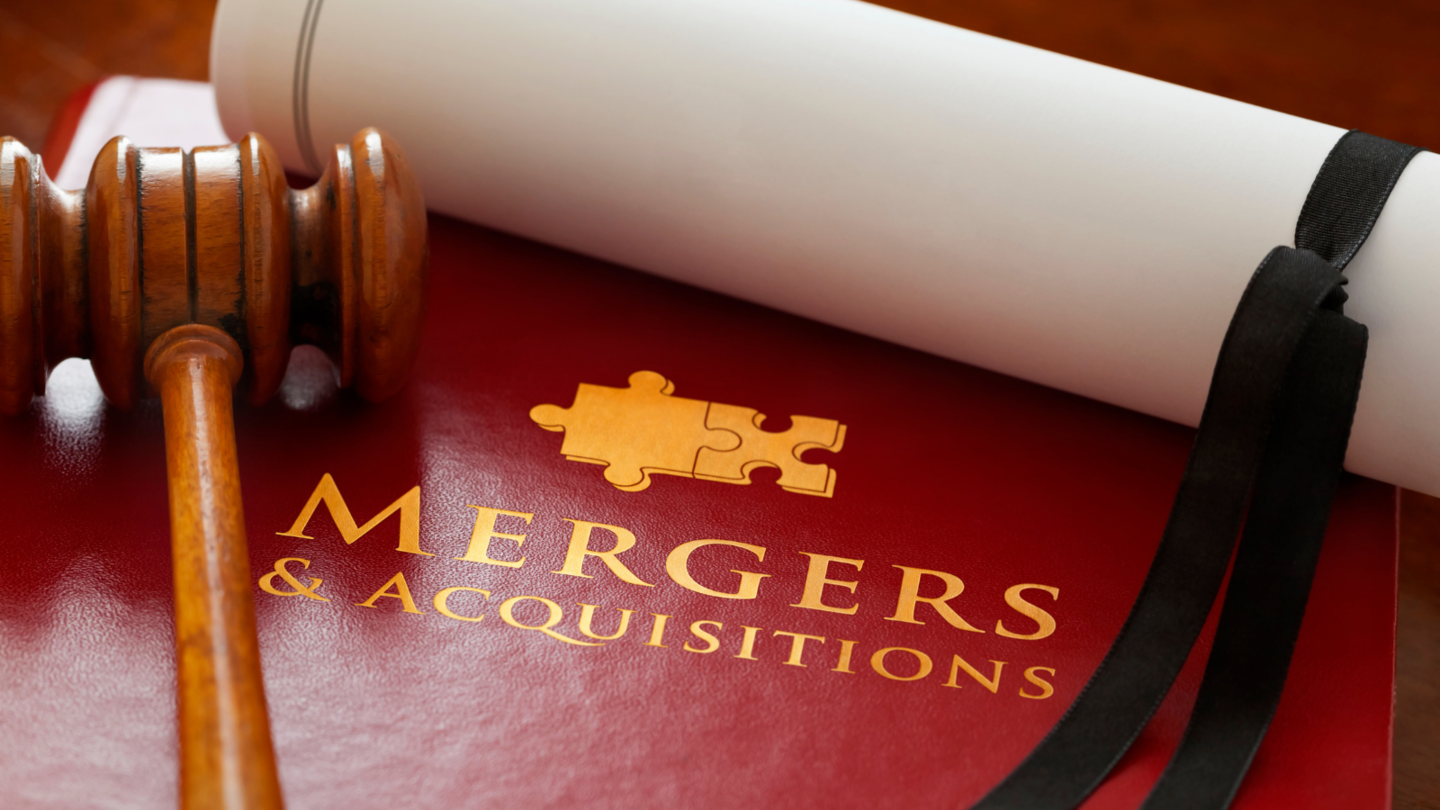News
Family Legacy: Honoring and Preserving Heritage

Family legacy is a tapestry woven with the threads of heritage, traditions, and values passed down through generations. Honoring and preserving this legacy is a timeless endeavor that fosters connection, instills pride, and enriches the collective narrative of a family. In this illuminating exploration, we delve into the art of preserving family heritage, celebrating ancestral wisdom, and nurturing the enduring legacy that shapes our identities.
Genealogy and Ancestral Discoveries
Embarking on a journey of genealogical exploration unveils the rich tapestry of a family’s history, illuminating stories of resilience, triumph, and cultural heritage. Unearthing ancestral discoveries, tracing lineage, and documenting familial narratives fosters a profound sense of connection to the past, providing valuable insights into the roots from which the family legacy blossomed.
Oral Histories and Intergenerational Wisdom
The art of preserving family heritage encompasses the oral traditions and intergenerational wisdom passed down through storytelling. Embracing the practice of recording oral histories, conducting family interviews, and documenting ancestral anecdotes ensures that the invaluable wisdom and experiences of previous generations are preserved for posterity, perpetuating a sense of continuity and cultural pride.
Cultural Traditions and Rituals
Cultural traditions and rituals serve as pillars of identity and are integral to preserving family heritage. The observance of customs, celebrations, and time-honored rituals not only connects individuals to their cultural roots but also imparts a profound understanding of the values and beliefs that have shaped the family legacy across time and geography.
Heirlooms and Treasured Artifacts
Heirlooms and treasured artifacts embody the tangible essence of family heritage, carrying within them the stories and memories of bygone eras. From antique heirlooms and ancestral relics to cherished artifacts and symbolic possessions, these tangible links to the past serve as poignant reminders of the enduring legacy that binds generations together.
Ethical Will and Legacy Planning
Ethical wills and legacy planning provide a structured framework for individuals to articulate their values, life lessons, and heartfelt wishes for future generations. Through the creation of ethical wills, individuals can convey moral and spiritual inheritances, imparting guidance and wisdom that transcends material possessions and endures as an everlasting testament to the family’s legacy.
Preserving Heritage Through Burial Vaults
In the heart of Salt Lake City, the tradition of utilizing burial vaults offers a unique perspective on honoring family legacy and preserving heritage. These sacred structures, designed to protect the remains of loved ones, serve as a testament to the reverence and value placed on preserving the physical essence of ancestors. Salt Lake City, with its rich history and cultural depth, hosts numerous sites where families can select burial vaults that resonate with their personal legacies and cultural values.
This practice not only underscores the importance of safeguarding the mortal remains but also symbolizes the enduring strength and continuity of family bonds through generations. Choosing a burial vault becomes an act of homage, reflecting deep-seated traditions and the collective desire to honor those who came before us in a manner that is both meaningful and lasting.
Commemorative Projects and Collaborative Initiatives
Engaging in commemorative projects and collaborative initiatives offers an opportunity for family members to actively participate in preserving and celebrating their heritage. From creating family archives and organizing reunions to initiating community outreach projects and cultural preservation efforts, collaborative endeavors strengthen familial bonds while safeguarding the legacy for future generations.
Digital Preservation and Technological Innovations
Incorporating digital preservation and technological innovations provides modern avenues for safeguarding family heritage. Digitizing documents, archiving multimedia materials, and utilizing virtual platforms for storytelling and memory sharing ensure that the family legacy transcends physical boundaries, reaching a global audience while embracing the advancements of the digital age.
Philanthropic Legacies and Social Impact
Extending the family legacy beyond individual narratives, philanthropic endeavors and social impact initiatives exemplify a commitment to leaving a lasting impression on the world. By championing charitable causes, supporting community development, and advocating for social change, families can perpetuate their legacy through meaningful contributions that resonate across generations.
In conclusion, the act of honoring and preserving family heritage is a profound testament to the enduring significance of generational connections, cultural pride, and the wisdom passed down through time. Whether through genealogy, oral histories, cultural traditions, heirlooms, ethical wills, collaborative projects, digital preservation, or philanthropic legacies, the art of preserving family heritage fortifies the bonds that unite generations and ensures that the legacy endures as a beacon of inspiration for the future.
News
Chaim Elefant: A Legacy of Compassion and Leadership

The Jewish community in Los Angeles was profoundly disheartened by the sudden passing of Chaim Elefant on Walk 8, 2023. At 33, a long time ancient, Chaim was a cherished part of the community, known for his thoughtfulness, liberality, and commitment to his family and community.
The Awful Incident
Chaim Elefant’s Sudden Passing
Chaim Elefant, a committed spouse and father of four youthful children, was on a flight from Los Angeles to Fortification Lauderdale, Florida, when catastrophe struck. He endured an extreme heart assault mid-flight, stunning those onboard and starting a frantic endeavor to spare his life.
Endeavors to Spare Him
In spite of the brave endeavors of the flight team and restorative experts onboard, Chaim deplorably passed away. The plane made a crisis landing in Modern Orleans, where he was hurried to the closest healing center. Tragically, all endeavors to resuscitate him were in vain.
Effect on the Community
The news of Chaim’s sudden passing sent shockwaves through the close-knit Jewish community of Los Angeles. Known for his warmth and sympathy, Chaim had touched the lives of numerous, taking off behind a bequest of adore and kindness. Chaim Elefant is a name synonymous with philanthropy, leadership, and a profound commitment to community service. His journey, marked by an unwavering dedication to bettering the lives of those around him, stands as a testament to the impact one individual can have on the world.
Early Life and Background
Chaim Elefant was born into a family deeply rooted in values of charity and communal responsibility. Growing up, he was instilled with the importance of giving back and making a difference in the lives of others. These early lessons shaped his worldview and set the foundation for his future endeavors.
Educational Pursuits and Early Career
Elefant’s academic journey was characterized by a thirst for knowledge and a drive to excel. He pursued higher education with a focus on fields that would equip him with the skills necessary to effect change. His early career was marked by a blend of professional success and a burgeoning involvement in various charitable initiatives. It was during these formative years that Elefant honed his leadership skills and began to envision ways to leverage his resources for the greater good.
Chaim Elefant: A Life Well-Lived
Chaim Elefant was not a fruitful businessman but moreover a given family man. Born and raised in Brooklyn, Modern York, Chaim developed up in an adoring family with his guardians, Lisa and Yaakov Elefant. He had a close relationship with his kin and expanded family, which ingrained in him the values of sympathy and liberality from a youthful age.
Proficient Achievements
All through his career, Chaim had accomplished exceptional victory. After graduating from college, he started his proficient travel within the protection industry, where he rapidly rose through the positions due to his solid work ethic and common administration capacities. His residency at USI Protections Administrations and Brown & Brown Protections set his notoriety as a top-performing executive.
In 2015, Chaim transitioned to the excellence industry, joining Craftsmanship Naturals as the Chief Deals Officer. Beneath his authority, the company experienced exponential development, extending its showcase reach both locally and globally. Chaim’s imaginative deals techniques and devotion to client fulfillment were instrumental in Craftsmanship Naturals’ success.
Commitments to the Community
Past his proficient endeavors, Chaim was profoundly committed to giving back to his community. He was effectively included in different charitable organizations and magnanimous activities, continuously energetic to lend a helping hand to those in need. Whether it was organizing gathering pledges occasions or volunteering his time, Chaim’s liberality knew no bounds.
The Community’s Response
Raising money Efforts
In the wake of Chaim’s passing, the Jewish community revived together to back his grieving family. A raising money campaign was propelled through The Chesed Finance, with the objective of raising $3 million to cover costs such as contract installments, treatment, and the children’s instruction. Inside the fair one day, over $1 million was raised, a confirmation to the effect Chaim had on those around him.
Back from Rabbis and Community Leaders
Rabbis and community pioneers, counting Rabbi Daniel Grama, Rabbi Boruch Gradon, and Rabbi Shlomo Einhorn, advertised their bolster and condolences to the Elefant family. They depicted Chaim as a man with a “heart of gold” and emphasized the significance of coming together as a community amid times of tragedy.
Adapting with the Loss
Burial service and Mourning
The burial service benefit for Chaim Elefant took place on Walk 9 at Beth Jacob Assembly, where family, companions, and community individuals accumulated to pay their respects. The enthusiastic benefit was livestreamed, permitting those incapable to go in individual to take an interest in grieving and remembrance.
Back for the Family
As the Elefant family starts the troublesome handle of lamenting and recuperating, they can take consolation within the overflowing of cherish and bolster from their community. From monetary help to enthusiastic back, the community has energized around Miriam and her children, guaranteeing that they know they are not alone in their grief.
Philanthropy and Community Engagement
Chaim Elefant’s philanthropic efforts are diverse and far-reaching. He has been instrumental in supporting numerous causes, ranging from education and healthcare to social services and cultural preservation. His approach to philanthropy is hands-on; he is known for his personal involvement in the projects he supports, ensuring that resources are utilized effectively and that the intended impact is achieved.
One of Elefant’s most notable contributions is his work in the field of education. He has funded scholarships, built schools, and supported educational programs that provide opportunities for underprivileged children. His belief in the transformative power of education drives his commitment to this cause, and his efforts have opened doors for countless young individuals.
Leadership and Vision
As a leader, Chaim Elefant is respected for his vision and integrity. He has served on the boards of various organizations, where his strategic insights and compassionate approach have been invaluable. His leadership style is characterized by a collaborative spirit, and he is known for bringing together diverse groups to work towards common goals.
Elefant’s vision extends beyond immediate charitable contributions; he is dedicated to fostering sustainable change. His initiatives often focus on creating long-term solutions to systemic issues, emphasizing empowerment and self-sufficiency. This forward-thinking approach ensures that his impact endures for generations.
Personal Philosophy and Values
At the heart of Chaim Elefant’s work is a deep-seated belief in the power of kindness and community. He is driven by a sense of responsibility to help those in need and to create a more just and equitable society. His personal philosophy is grounded in the idea that true success is measured not by personal gain, but by the positive difference one makes in the world.
Elefant is also a strong advocate for ethical leadership and transparency. He believes that integrity is paramount in all endeavors and that leaders must set an example through their actions. This commitment to ethical principles has earned him the respect and admiration of his peers and the communities he serves.
Legacy and Continuing Impact
Chaim Elefant’s legacy is one of compassion, leadership, and unwavering dedication to service. His contributions have touched countless lives and have set a standard for others to follow. As he continues his work, Elefant remains a beacon of hope and an inspiration to those who seek to make a difference.
In an ever-changing world, the enduring impact of Chaim Elefant’s efforts serves as a reminder of the power of individual action. His story is a powerful example of how one person’s commitment to good can create ripples of positive change, inspiring others to join in the pursuit of a better, more compassionate world.
Conclusion
In the wake of catastrophe, the Jewish community of Los Angeles has come together to grieve the misfortune of Chaim Elefant, an adored spouse, father, and companion. His bequest of benevolence, liberality, and sympathy will live on within the hearts of all who knew him, serving as a directing light amid troublesome times.
Special FAQs
Q: How can I contribute to the gathering pledges endeavors for the Elefant family?
A: You’ll be able to raise money through The Chesed Support website.
Q: What was Chaim Elefant’s part at Craftsmanship Naturals?
A: Chaim served as the Chief Deals Officer at Craftsmanship Naturals, where he played a key part in overseeing both residential and universal sales.
Q: How did the Jewish community react to Chaim’s passing?
A: The community revived together to back the Elefant family, both emotionally and financially, demonstrating the strength of their bonds in times of need.
Q: What was the goal of the fundraising campaign for the Elefant family?
A: The goal of the campaign was to raise $3 million to cover expenses such as mortgage payments, therapy, and the children’s education.
Q: How can I watch the livestream of Chaim Elefant’s funeral service?
A: The funeral service was livestreamed and can be viewed on YouTube for those who were unable to attend in person.
News
Key Legal Considerations in Mergers & Acquisitions: Insights from a Lawyer

Key Takeaways:
- Legal due diligence is crucial to uncover potential risks and liabilities before proceeding with a merger or acquisition.
- The structure of the deal, whether it is an asset purchase, stock purchase, or merger, significantly impacts tax consequences and legal liabilities.
- Regulatory compliance is essential, and securing the necessary approvals is a fundamental prerequisite for the completion of any M&A deal.
- Employment law considerations, including contracts and benefits, should be carefully managed to mitigate the risk of labor disputes and turnover.
- Intellectual property rights need to be clearly defined and transferred to prevent future legal conflicts.
When companies embark on the complex process of mergers and acquisitions (M&As), the legal implications are far-reaching and require meticulous attention. From preliminary due diligence to the integration of operations, understanding and addressing the key legal considerations under the counsel of a seasoned lawyer is vital to the success and legality of the transaction. Here, we delve into several essential legal considerations shared by experienced M&A attorneys.
The Imperative of Legal Due Diligence
Legal due diligence is the bedrock of any M&A process. This investigative procedure involves an exhaustive review of the target company’s legal documents, contracts, litigation risks, and other liabilities. A mergers & acquisitions lawyer Denver scrutinizes past and present legal issues that could impact the deal’s value or cause post-transaction complications. This step often uncovers information that can be used in negotiating the terms of the agreement, such as adjustments to the purchase price or the structuring of indemnity clauses.
Understanding the Structure of the Deal
The transaction structure—an asset purchase, stock purchase, or statutory merger—carries unique implications for both parties. Each form has specific benefits and risks concerning liability exposure and tax efficiency. Buyers often prefer to select the assets and liabilities they are willing to assume in an asset purchase. At the same time, sellers retain the remaining liabilities—conversely, a stock purchase transfers company ownership, including all assets and liabilities, to the buyer. Legal counsel must navigate and negotiate the structure that aligns with the client’s business objectives and risk tolerance.
Regulatory Compliance and Approvals
The regulatory landscape for M&As is intricate, with various laws and government agencies involved, depending on the sectors and countries in which the companies operate. Transactions may be subject to antitrust reviews, such as scrutiny under the Hart-Scott-Rodino (HSR) Act in the United States or by the European Commission in the EU. Additionally, industry-specific regulations may govern the approval process, requiring sign-off from bodies like the Federal Communications Commission (FCC) for telecom mergers or the Federal Energy Regulatory Commission (FERC) for energy sector deals. Legal expertise ensures compliance and a smoother pathway to obtaining the necessary clearances.
Employment Law Considerations
Employment law is another critical area during M&As, involving assessing existing employment contracts, collective bargaining agreements, and benefit plans. Adjustments may be required to align with the new entity’s policies or due to redundancy. Legal expertise ensures that employment-related changes follow labor laws and contractual obligations, preventing potential disputes that can damage the company’s reputation and bottom line.
Intellectual Property Management
Intellectual property (IP) rights are often a substantial element of a target company’s valuation in an M&A transaction. Ensuring the proper assignment and transfer of patents, trademarks, copyrights, and trade secrets is paramount. A rigorous assessment should ascertain IP assets’ validity, ownership, and potential vulnerabilities. Legal advisors navigate the complex web of IP laws to protect these assets during and after the transaction.
Tax Implications and Liabilities
Tax considerations in an M&A can significantly affect the profitability and structure of the deal. Tax liabilities can reside within the assets, carry through in a stock purchase, or emerge from the restructuring during the merger. Lawyers specializing in tax law evaluate potential exposures and advise on tax-efficiently structuring transactions, often working with tax consultants and accountants.
Environmental Concerns and Property Assessments
In today’s environmentally conscious business environment, assessing the environmental liabilities and property conditions during an M&A can prevent costly remediation and compliance issues later. Legal counsel adept in environmental laws helps identify, quantify, and address potential risks within the transaction’s framework.
Representations and Warranties
Representations and warranties serve as contractual promises the seller makes to the buyer regarding the company’s state and are critical components of the M&A agreement. Legal professionals draft these provisions to ensure they are clear, precise, and backed with indemnities to protect clients from future claims and liabilities.
Post-Merger Integration Issues
The conclusion of an M&A transaction is only the beginning of the integration process. Combining two companies involves reconciling legal matters such as contracts, licenses, and employment issues. Legal support is vital to address these concerns and ensure a smooth transition into a single operating entity.
Conclusion
Mergers and acquisitions are among the most significant events in a company’s life cycle, carrying the power to reshape the business’s future. Legal considerations are at the heart of these processes, and the role of legal counsel cannot be overstated. Addressing the intricate web of due diligence, regulatory compliance, employment law, intellectual property, and post-merger integration requires legal expertise and strategic foresight. Companies that prioritize these legal aspects under the guidance of knowledgeable lawyers are more likely to achieve seamless transactions and realize the total strategic value of their M&A endeavors.
News
The Crucial Function of Whistleblowers in Maintaining Corporate Liability

Key Takeaways:
- Whistleblowers are central in safeguarding corporate integrity and holding entities accountable for their actions.
- Seeking expert advice from an SEC whistleblower attorney is crucial for whistleblowers to navigate the complex legal landscape.
- A healthy corporate culture reinforced by effective whistleblower programs creates a conducive environment for ethical business practices.
- A sense of duty often inspires whistleblowers to the greater good despite potential risks to their personal and professional lives.
- With the advent of technology and global initiatives, the future of whistleblowing is geared towards increased protection and international cooperation.
Understanding the SEC Whistleblower Program
The SEC Whistleblower Program, established as part of the Dodd-Frank Wall Street Reform and Consumer Protection Act, was created to incite individuals to report possible securities law violations. Incentivizing with the promise of financial rewards, the program offers a distinctive route for individuals to assist law enforcement in the pursuit of regulating the securities market. These monetary incentives are only awarded when information provided directly leads to an SEC enforcement action, resulting in over a million dollars in fines. The information must be original, which means it hasn’t been previously reported and significant enough to profoundly influence the SEC’s ability to enforce legal actions against wrongdoers.
Paramount to the success of the SEC Whistleblower Program is the confidentiality it grants to individuals coming forward. Providing the option to report anonymously with an SEC whistleblower attorney representation serves a dual purpose: it protects the individual’s identity and prevents retaliatory actions from employers. This whistleblower protection barrier has become a cornerstone for the SEC’s broader strategy to encourage transparency and discourage wrongful practices within corporations. Additionally, the program’s establishment acknowledges the potential risks that whistleblowers face and attempts to alleviate the personal burden of coming forward with critical information.
Deciding to Blow the Whistle: Considerations and Implications
The choice to blow the whistle is a significant and often life-changing decision that extends far beyond the walls of the guilty corporation. Whistleblowers are thrust into a role that subjects them to intense scrutiny and poses ethical, personal, and professional dilemmas. Carefully contemplating potential outcomes, understanding the legal landscape, and seeking legal advice become paramount steps in whistleblowing. Many individuals must balance the moral weight of their knowledge against the possible ramifications of exposing it. The decisions concern legality, personal integrity, and the broader ethical stance against corruption and injustice.
Whistleblowing often stems from a place of conscientious objection in which the whistleblower feels compelled to act against wrongdoings, regardless of the personal cost. Whistleblowers operate under immense pressure, and the risks they face are not easily dismissed. Along with providing a public service, they may also be conducting a balancing act involving their jobs, reputation, and relationships. Retaliation, while illegal, is a grim reality for many who choose to speak out. It’s a palpable deterrent that can only be combated with adequate legal protections and societal support for those brave enough to disclose corporate misdeeds.
The Impact of Whistleblowers on Corporate Culture
Whistleblowers have historically shaped corporate norms, cultivating a business environment that prizes lawful and ethical conduct. The ripples caused by their courageous actions have promoted regulatory compliance and a philosophical shift within business hierarchies. Executives and board members increasingly know that financial profit cannot override societal responsibility or legal obligation. When employees are conscious that whistleblowers are watching and willing to report, a natural disincentive emerges against engaging in fraudulent and illegal behavior.
Creating internal channels for whistleblowing signals a forward-looking approach that may ultimately distinguish a company as a leader in corporate responsibility. An internal program acts as an early warning mechanism, detecting and handling in-house issues before they escalate into public scandals. It can significantly reduce risk and help maintain the organization’s public image. Such programs sensitize employees to the channels for reporting misconduct and reinforce the organization’s commitment to lawful and ethical practices. However, corporate rhetoric that supports whistleblowing must be matched by action; the onus lies on the company leadership to ensure these programs are substantive and not merely a check-the-box exercise.
Legal and Financial Ramifications for Whistleblower Cases
Navigating the aftermath of whistleblowing is as much a legal endeavor as a moral one. Whistleblowers embroiled in legal proceedings must grapple with a myriad of legislative stipulations, each presenting its own challenges and opportunities for legal recourse. With potentially high financial settlements at stake, the outcomes of these cases can have monumental implications both for the whistleblower and the guilty party. For those who provide actionable intelligence resulting in significant financial sanctions, the SEC Whistleblower Program offers substantial monetary rewards as a token of restitution and incentive for other potential informants.
Within the broader justice context, successful whistleblower cases can lead to substantial financial compensation for the victims of corporate wrongdoing. This compensation is a remedial measure and a symbol of retribution for those injured by the wrongdoing. Fines levied against the fraudulent parties serve as punitive damages and deterrents to others contemplating similar misdeeds. Such sanctions are essential in maintaining an orderly market where regulations are respected and adhered to.
Navigating Threats and Challenges as a Whistleblower
The path a whistleblower must walk is often lined with risks and obstacles that are both numerous and daunting. The most visible of these dangers is the possibility of reprisal from their employer, ranging from subtle exclusion to overt hostility and job termination. Legal protections notwithstanding, the risk of these retaliatory measures can be a strong deterrent for those contemplating whether to come forward. Whistleblowers may also encounter skepticism, as they are often required to substantiate their claims with hard evidence. Accumulating such proof is a nuanced task that demands meticulous documentation and, frequently, a deep understanding of complex business processes and legal requirements. The delicate nature of documenting potential fraud without breaching professional boundaries or inviting hostility elucidates the need for an intricate balance between moral clarity and strategic caution.
In their quest to bring the truth to light, whistleblowers must also authenticate their claims to a level that can withstand legal scrutiny. This evidentiary challenge can be considerable, underscoring the importance of assembling a cogent case backed by concrete, verifiable data. The whistleblower’s narrative must be more than compelling and irrefutable. Amid these pressures, whistleblowers must maintain their focus and ethical course, often under circumstances that test their conviction and resilience.
-

 Tech5 months ago
Tech5 months agoGeekzilla.tech Honor Magic 5 Pro: Unveiling the Technological Marvel
-

 Blog5 months ago
Blog5 months agoGeekzilla Autos: Everything You Need To Know
-

 Blog5 months ago
Blog5 months agoGeekzilla Podcast: A Journey into Geek Culture
-

 Health5 months ago
Health5 months agoWellhealth how to build muscle Tag: Complete Guide
-

 Health5 months ago
Health5 months agoWellHealthOrganic Buffalo Milk Tag: Your Nutrient-Rich Dairy Upgrade
-

 Tech5 months ago
Tech5 months agoPikruos is a Leading Provider of Innovative IT Solutions
-

 Health5 months ago
Health5 months agoKecveto: The Ultimate Guide
-

 Lifestyle5 months ago
Lifestyle5 months agoThe Human Gathering Cult: Uniting People Lovingly


